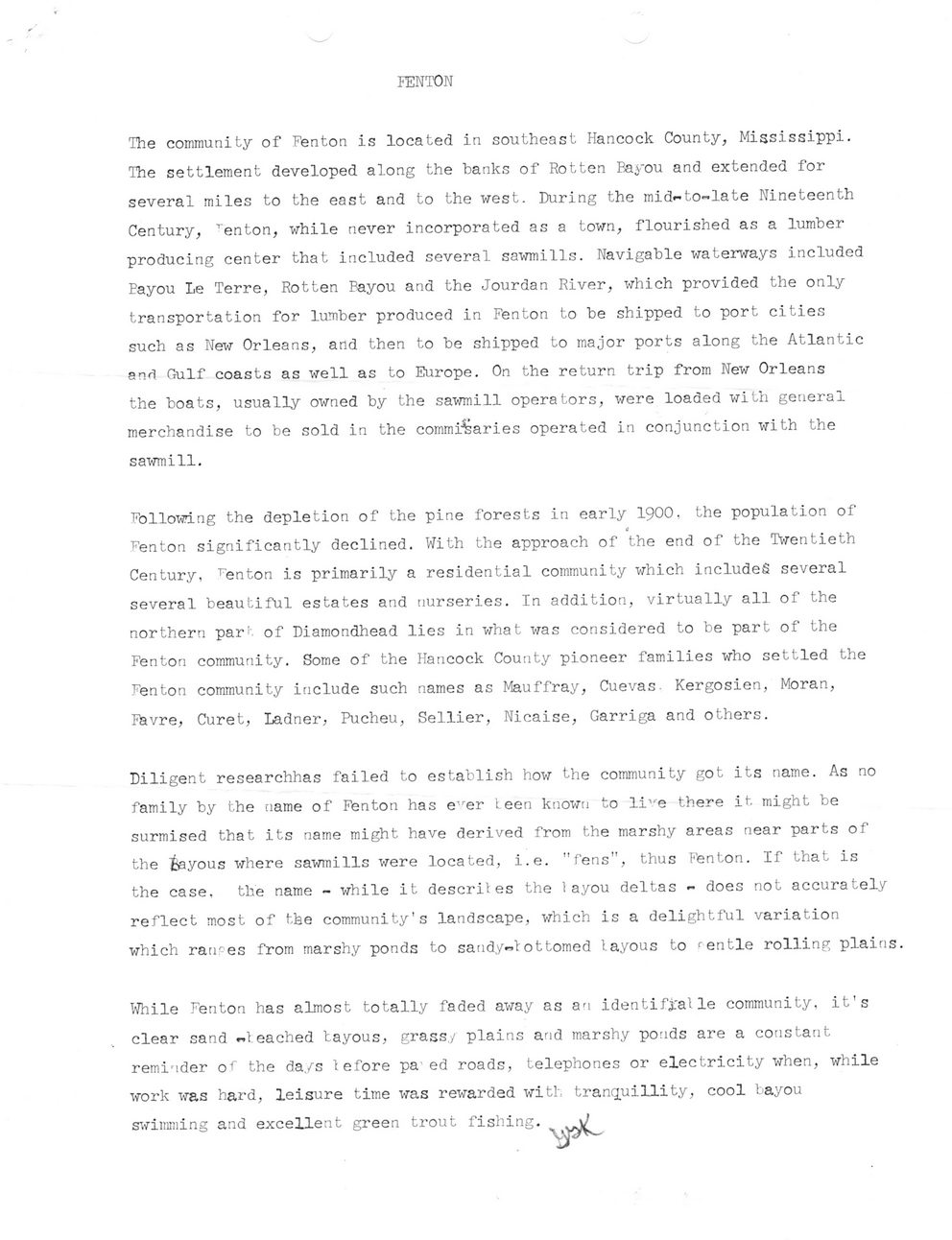This text was obtained via automated optical character recognition.
It has not been edited and may therefore contain several errors.
FENTON The community of Fenton is located in southeast Hancock County, Mississippi. The settlement developed along the banks of Rotten Bayou and extended for several miles to the east and to the west. During the mid-to-late Nineteenth Century, ‘'"enton, while never incorporated as a town, flourished as a lumber producing center that included several sawmills. Navigable waterways included Payou Le Terre, Rotten Bayou and the Jourdan River, which provided the only transportation for lumber produced in Fenton to be shipped to port cities such as New Orleans, arid then to be shipped to major ports along the Atlantic and Gulf coasts as well as to Europe. On the return trip from New Orleans the boats, usually owned by the sawmill operators, were loaded with general merchandise to be sold in the commi^aries operated in conjunction with the Following the depletion of the pine forests in early 1900. the population of Century, renton is primarily a residential community which includes several several beautiful estates and nurseries. In addition, virtually all of the northern part of Diamondhead lies in what was considered to be part of the Fenton community. Some of the Hancock County pioneer families who settled the Fenton community include such names as Mauffray, Cuevas- Kergosien, Moran, Favre, Curet, Ladner, Pucheu, Sellier, Nicaise, Garriga and others. Diligent researchhas failed to establish how the community got its name. As no family by the name of Fenton has e’rer I een known to live there it might be surmised that its name might have derived from the marshy areas near parts of the Bayous where sawmills were located, i.e. "Tens", thus Fenton. If that is the case, the name - while it describes the 1 ayou deltas - does not accurately reflect most of the community's landscape, which is a delightful variation which ranpes from marshy ponds to sandy-lottomed layous to <~entle rolling plains. While Fenton has almost totally faded away as an identifi’al le community, it's clear sand bleached bayous, grassy plains and marshy ponds are a constant reminder o"f' the da/s tefore pa'ed roads, telephones or electricity when, while work was hard, leisure time was rewarded with tranquillity, cool bayou swimming and excellent green trout fishing. sawmill. ^enton significantly declined. With the approach of the end of the Twentieth

Hancock County ABC Program Fenton-(1)